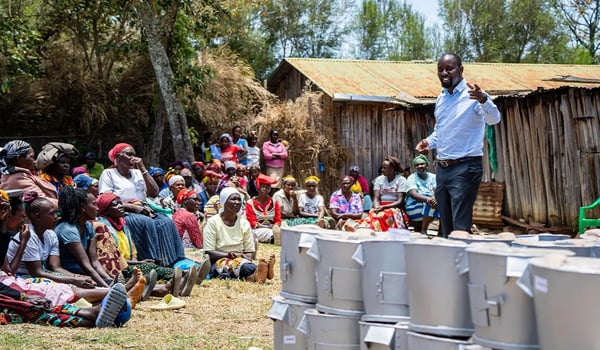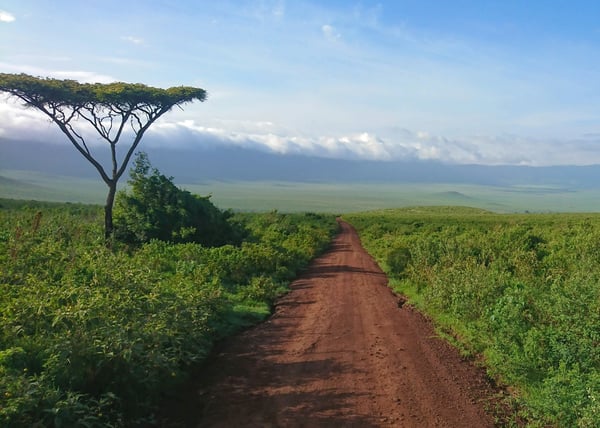The Kasigau Corridor REDD+ Project in Kenya
In the heart of Kenya, bridging Tsavo East and Tsavo West National Parks, lies a groundbreaking conservation initiative known as the Kasigau Corridor REDD+ Project. This initiative represents a pivotal effort in the fight against deforestation and habitat degradation, spanning over 500,000 acres of dryland forest. It's not just about trees and carbon; the project is a lifeline for biodiversity, including numerous endangered species, and a beacon of hope for surrounding communities, offering sustainable development opportunities in harmony with nature.
The Genesis of the Kasigau Corridor
The Kasigau Corridor REDD+ Project, spearheaded by Wildlife Works, emerged from a pressing need to combat deforestation and forest degradation that threatened the ecological bridge between Tsavo East and West National Parks. This corridor is vital for wildlife migration and sustains a rich biodiversity, including iconic African elephants, lions, and numerous bird species.
The Mechanics of REDD+
Reducing Emissions from Deforestation and Forest Degradation (REDD+) is a global initiative aimed at incentivizing forest conservation through carbon credit systems. By quantifying the carbon stored in forests, REDD+ transforms conserved trees into valuable assets. The Kasigau Corridor project, through meticulous monitoring and verification, generates carbon credits by proving sustained conservation efforts, which are then sold on the global carbon market. This mechanism not only puts a tangible value on keeping forests intact but also channels much-needed funds into conservation and community development.
Community at the Core
At the heart of the Kasigau Corridor project lies a commitment to community. Unlike conventional conservation projects that may sideline local populations, this initiative is deeply rooted in the principle of Free, Prior, and Informed Consent (FPIC). It prioritizes community engagement and development, ensuring that the benefits of conservation are shared. From job creation in eco-friendly enterprises to funding educational and healthcare programs, the project embodies a holistic approach to sustainable development.
A Sanctuary for Biodiversity
The project's environmental achievements are profound. By preventing deforestation and forest degradation, it safeguards habitats for countless species, some of which are on the brink of extinction. This initiative contributes significantly to the global fight against biodiversity loss, acting as a critical refuge for wildlife and maintaining the ecological integrity of the Tsavo region.
The Ripple Effect: Beyond Carbon Credits
The impact of the Kasigau Corridor REDD+ Project extends far beyond carbon sequestration. It has sparked a paradigm shift in how conservation is perceived and implemented, showcasing the symbiotic relationship between environmental preservation and socio-economic development. The project's success has inspired similar initiatives globally, offering a replicable model for harmonizing conservation with human well-being.
Looking Ahead: Challenges and Opportunities
While the Kasigau Corridor project stands as a testament to what can be achieved, it also highlights the challenges facing conservation efforts worldwide. The ongoing threat of climate change, coupled with socio-economic pressures, underscores the need for continued innovation and collaboration. The project's adaptability, resilience, and inclusive approach provide valuable lessons for future conservation endeavors.
Conclusion
The Kasigau Corridor REDD+ Project is a beacon of hope in the conservation world, illustrating the powerful synergy between environmental stewardship and community empowerment. As we forge ahead, the project's legacy offers guiding principles for balancing ecological preservation with human progress. In the face of escalating environmental and social challenges, the Kasigau Corridor stands as a compelling example of what can be accomplished when we unite for a common cause.






